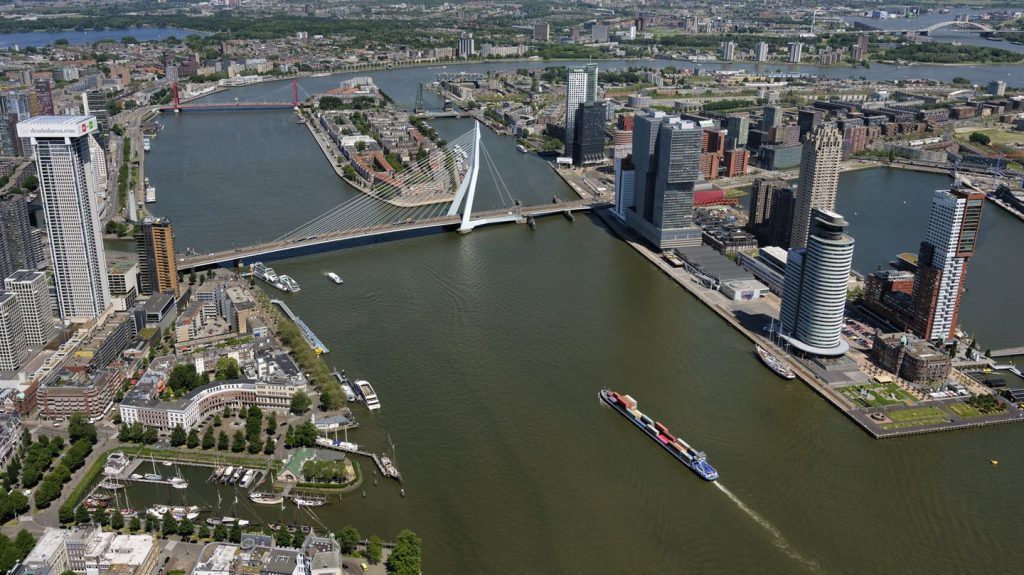The conflict in Ukraine has prompted the European Union and other bodies to impose a number of sanctions on Russia. The extensive import of energy (crude oil, oil products, LNG, coal) is not (yet) affected by sanctions, but the export and transhipment of containers, in particular, suffers from the uncertainty caused by the conflict and the sanctions.

Subscribe to our Telegram channel to get a daily dose of business and lifestyle news from NHA – News Hub Asia!
Russia-Oriented Transhipment
Of the roughly 470 million tons transshipped through the port of Rotterdam, 62 million tons are oriented towards Russia (13 per cent). Large amounts of energy carriers are imported from Russia via the port of Rotterdam. Currently, this comes to roughly 30 per cent of Russian crude oil, 25 per cent of LNG, and 20 per cent of oil products and coal. Russia exports products such as steel, copper, aluminium and nickel via Rotterdam. This is not yet covered by the trade restrictions announced by the European Union.
It is currently unknown what the developments in Ukraine will mean for these flows in the coming period.
Customs Control
Barely 10 per cent of Rotterdam’s container transport is linked to Russia. The European Union has prohibited the export of a number of goods that can be used for both civilian and military purposes (dual-use). That means container cargo with Russia as its destination will receive extra Customs inspections.
The uncertainty (what exactly is covered by the sanctions, how quickly will Customs release containers for export, how is the conflict developing, how big are the payment risks etc.) means that various container terminals and shipping companies have decided not to accept or handle any containers with destination Russia at the moment.
Insecurities
The imposed sanctions, combined with their unknown impact on day-to-day operations or the development of the situation in the coming days, is causing uncertainties for many businesses. As a result, companies will also make individual choices on how to handle Russian cargo, as several container terminals and shipping companies have already done.
Nato/the American armed forces have had agreements with one company in the port of Rotterdam for decades covering the transport of defence materials. These materials are regularly transferred via the port. It is possible that there will be more transport of defence materials in the short term.
Cyber Security
As far as the cyber security of businesses is concerned, the port of Rotterdam has FERM. The purpose of FERM is to encourage cooperation between companies in the port of Rotterdam and to increase awareness of cyber security risks. Currently, FERM has reported that the NCSC has not yet had any concrete indications of cyber attacks impacting the Netherlands in relation to the war in Ukraine.
Position
The Rotterdam Port Authority has not independently drafted any policies of its own in response to the conflict in Ukraine. Nor does the Port Authority have the authority to do something like imposing restrictions on businesses. This is the responsibility of the Dutch government. The Port Authority supports the policies of the Dutch and European authorities. International rule of law and the right to self-determination of countries are essential values and therefore not open to question.
Source: Port of Rotterdam / Press release
